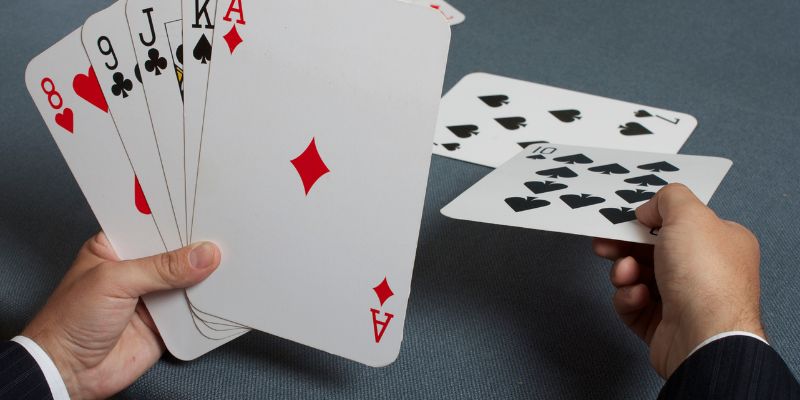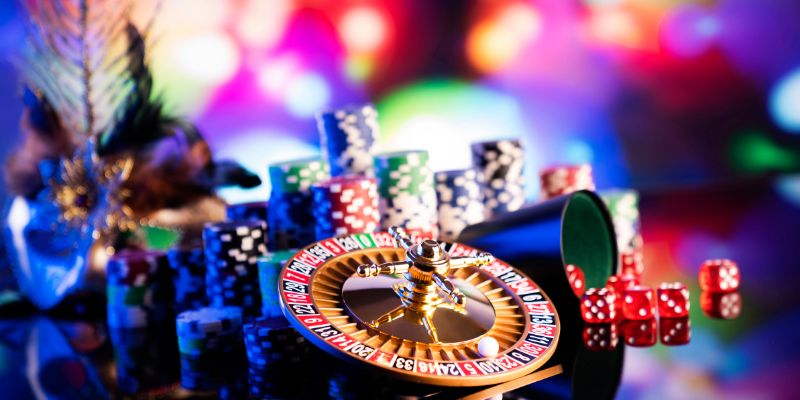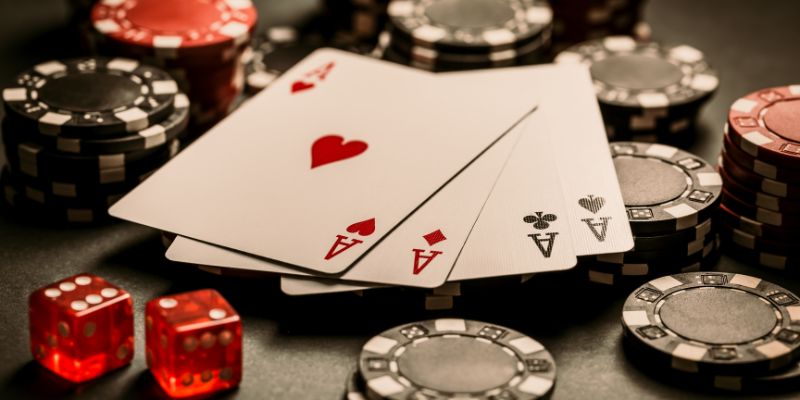Learn how to play Poker well with strategies and tips to help you win big, play smart and increase your chances of winning in every game.
How to play Poker well does not only come from theoretical knowledge but also a process of effort and practice to become an excellent player. A smart way of playing, the ability to read opponents, along with the right tactical decisions will help you improve your performance in each game. In this article, we will delve into the necessary knowledge and effective strategies to help you play Poker better.
Understanding Poker – The Foundation for Success

Before starting your journey to conquer Poker XOSO66 , it is very important to understand the basic concepts. We will learn about the types of Poker games, how to calculate points, the rules of the game and the factors that affect the results of each hand.
Types of Poker Games
Poker There are many different variations, but they are mainly divided into three main types: Texas Hold’em, Omaha, and Seven Card Stud.
Texas Hold’em is the most popular variety, where each player receives two hole cards and five community cards in the middle of the table.
Omaha is similar to Texas Hold’em but each player has four private cards and must use two of them in combination with the three community cards.
Seven Card Stud has no community cards. Each player receives a total of seven cards, some face down and some face up, from which they determine their hand.
Understanding these types will help you easily choose the type of play that suits your personal style.
How to Calculate Points in Poker
Points in Poker are calculated based on the combination of cards you have. This is quite important so you can know which hand is stronger than the other hand.
From the lowest pair of hands to the strongest hand like royal flush, the world of Poker is diverse and complex.
Mastering the order of cards will not only help you feel more confident when placing bets but also expand your ability to analyze situations throughout the game.
Basic Rules of the Game
Although each variation of Poker has its own rules, they all follow some general rules. Players take turns making moves such as betting, raising or folding.
If you understand the rules of the game thoroughly, you will avoid unfortunate mistakes during the game and can also make the most of your decisions.
Factors Affecting the Results of the Game
There are many factors that affect the final result in a Poker game. Including personal skills, psychology, luck, and especially how you evaluate and observe your opponents.
Once you understand these things, you will be better able to make informed decisions, increasing your odds of winning each hand.
Player Strategy and Important Skills
Once you have mastered the basics, the next step is to develop your playing strategy and skills to increase your chances of winning at Poker .
Psychology of Mastering the Table
Each Poker player has their own mindset. Therefore, mastering your own psychology and being patient is extremely important in Poker.
You need to learn to control your emotions in all situations: when you win, when you lose or when you face bluffs from your opponent.
Using psychology to score points at the table not only involves keeping calm but also putting pressure on your opponents, causing them to make wrong decisions.
Competitor Analysis
The ability to read your opponents is an indispensable skill for any Poker player. You need to pay attention to their actions, expressions and betting habits.
Watching how they played in previous rounds will help you get an idea of their playing style and thus predict their actions in the current hand.
Sometimes a small story from the progress of a hand can reveal valuable information about the strength of an opponent’s hand.
Building a Betting Strategy
Betting strategy is not just about putting money into the pot, it is an art. The timing of your bets will change the outcome of the game.
The golden rule is to “bet with a purpose”. Each bet should have a specific strategy: increase the bet to create pressure, or bet small to attract opponents into the pot when you have a strong hand.
This way, you can both control the game and get the most out of the table.
Avoid Common Mistakes
No matter how experienced you are, there is always a chance of making mistakes. Taking your heart out of the equation and looking at things objectively will help you avoid making bad decisions.
A big mistake is betting too much on weak hands. Learn to fold when necessary and be patient and wait for better opportunities.
As you identify and correct common mistakes in Poker gameplay, you will become better and better with each hand.
Practice Poker Playing Skills Through Experience

If you wanthow to play Poker well, you need to practice regularly and experience many different scenarios in Poker . Don’t just stop at theory; apply what you have learned to practice immediately.
Real-Life Play vs Online Play
Playing Poker online and playing Poker live both have their own advantages and disadvantages. Poker online is often accessible and convenient, but lacks the face-to-face communication element.
Playing live helps you develop your reading and psychology skills, because you can see your opponent’s expressions and gestures.
Experiment with both and see which method works best for you. You may discover new techniques each time you play.
Participate in Minor Tournaments
Participating in small Poker tournaments will provide you with valuable experience and enable you to apply the strategies you have learned.
Tournaments can help you improve your bankroll management and stress management while also providing an opportunity to meet and learn from other players.
Even if you don’t win, the experience you gain from the tournament will be worth much more than money.
Accepting Criticism
Listening to feedback from other players or participating in Poker forums will help you become more aware of yourself and your playing style.
You can find a wide range of helpful resources from video tutorials to in-depth articles and group discussions.
Always be open to suggestions and be willing to correct your mistakes. This is a great way to improve quickly.
Build an Exercise Habit
Ultimately, building a daily practice routine will be the key to becoming a good Poker player. Spending time studying books, joining Poker communities and practicing playing cards will help you improve your personal skills.
Think of Poker like a sport: you need to practice regularly to achieve the best results. It is perseverance and constant effort that is the real secret to success.
Practice Poker Playing Skills Through Experience
FAQs
Poker What is that?
Poker is a card game that uses skill, strategy, and sometimes a little luck. Players try to make the strongest hand by using their private cards in combination with the community cards.
How can I improve my playing skills?
Improving your Poker skills requires continuous learning from books, videos, and your own playing experience. You also need to participate in tournaments and chat with other players to get feedback.
Should I play Poker online or offline?
Both formats have their own benefits. Playing online gives you easy access and quick practice, while playing offline improves your reading skills and communication abilities.
Who can succeed in Poker ?
Anyone can succeed in Poker if they are willing to learn, practice and develop the necessary skills. Patience and perseverance play an extremely important role.
How to avoid traps when playing Poker ?
To avoid falling into the trap, you need to observe and analyze your opponents. Do not let your emotions get the better of you and forget your strategy and the reason for your bet. Always consider every situation before making a decision.
Conclude
In the journey to become a good Poker player, it is important not only tohow to play Poker well, but also patience and continuous learning from each experience. Classical knowledge combined with practice will help you improve your personal skills. Take time to practice, analyze and develop yourself to get closer to success. Good luck on your Poker journey!
